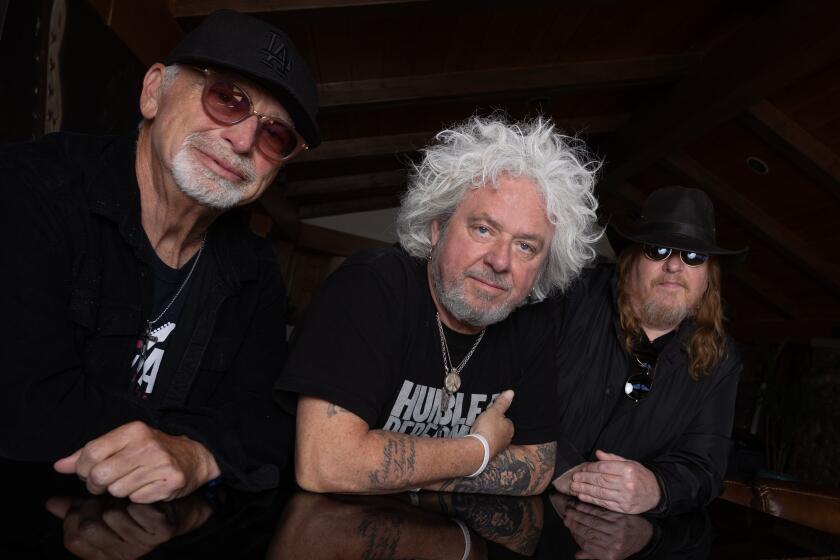Larry Bunker, 76; Respected Drummer
Larry Bunker, a drummer and percussionist who played with a who’s who of jazz giants and fashioned a busy career as a film musician, has died. He was 76.
Bunker died March 8 at Queen of Angels-Hollywood Presbyterian Medical Center in Los Angeles of complications from a recent stroke, said his wife, Brandyn.
For the record:
12:00 a.m. March 18, 2005 For The Record
Los Angeles Times Friday March 18, 2005 Home Edition Main News Part A Page 2 National Desk 0 inches; 25 words Type of Material: Correction
Larry Bunker obituary -- The obituary of drummer Larry Bunker in Thursday’s California section said he played with trombonist Howard Rumsey. Rumsey is a bassist.
A native of Long Beach, Bunker was musically inclined from an early age and was self-taught on piano, accordion, drums and saxophone. In 1946, he was accepted into the U.S. Army band and played drums and piano while serving at Ft. Ord until his discharge in 1948.
In the early 1950s, he played with trombonist Howard Rumsey at the fabled Lighthouse Cafe in Hermosa Beach. From then on, he played with the top names in jazz, including saxophonists Stan Getz, Art Pepper and Gerry Mulligan, and guitarist Barney Kessel. He was also a member of singer Peggy Lee’s band.
He joined Bill Evans in 1964 for one of the pianist’s better trios. In an interview with Down Beat magazine in 1964, Evans called Bunker a “marvelous musician.”
“He plays excellent vibes as well as being an all-round percussionist, and being so musical he just does the right thing because he’s listening,” Evans said. “He really knows music, feels music -- and is a superlative drummer.”
Throughout his long career, Bunker was a highly sought-after studio musician for movies who worked with a number of leading film composers, including Henry Mancini, Alfred Newman, Miklos Rosza, Jerry Goldsmith, Johnny Mandel and John Williams. His first film was “Stalag 17” in 1953 and his last was “The Incredibles” in 2004.
He also was a timpanist for the Los Angeles Philharmonic and, according to his family, performed on more than 30 Academy Awards programs, including the 77th in February. In his later life, he listened primarily to classical music.
According to the late critic Leonard Feather, Bunker’s avocations included collecting and restoring antiques, repairing instruments and making custom instruments.
In addition to his wife, Bunker is survived by his daughter, Tracy; his brother, George; and a granddaughter.
More to Read
The biggest entertainment stories
Get our big stories about Hollywood, film, television, music, arts, culture and more right in your inbox as soon as they publish.
You may occasionally receive promotional content from the Los Angeles Times.










